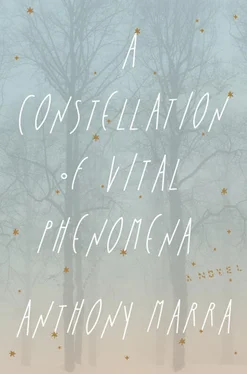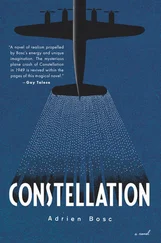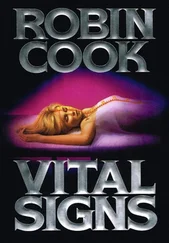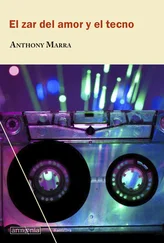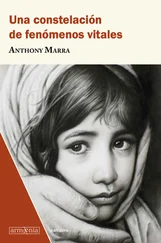“The draft soldiers in blue uniforms are scared teenagers. They are what we might call the victims of absurdism,” he said, not one to miss an opportunity to lecture a captive audience. “They would surrender if you waved a soup spoon at them. Most can’t find Chechnya on a map and don’t care if Putin, Maskhadov, or Father Christmas presides over the republic; most arrived by train in passenger carriages but most will return as Cargo 200, sealed within zinc-lined coffins in the freights. But the kontraktniki , the ones you see wearing sleeveless black T-shirts to show off their tattoos, they are nihilists, immoralists, or misanthropists, take your pick. They were released from prison provided they serve a certain number of years in Chechnya. They want to be here because this is the only place they can express their true nature, and, if I weren’t hiding behind a log, I suppose I might even admire them because they are committed to the dialectics of their philosophy, no matter how horrid.”
At that moment, a blond-haired conscript had pulled Khassan from the line of men that were to be taken to the Landfill. He hid Khassan in a tin-roofed shed and gave him his grandparents’ name and address. “You must survive,” the blond-haired conscript said. “You must survive and tell my grandparents. Tell them their grandson is not like the other solidiers. Tell them that they raised him well, that he’s trying so hard to stay the boy they raised.” Khassan would write a letter to the conscript’s grandparents, but without access to a functional postal system, it would remain in his drawer for seventeen months, until the autumn morning when a Russian woman knocked on his door, asking if he had seen her son. It wasn’t uncommon to see the mothers of missing Russian soldiers searching the Chechen highlands for their sons. Khassan wouldn’t be able to help her, but he would ask her to post his letter from Russia. He wouldn’t know that in Novosibirsk the grandparents of the blond-haired conscript would receive his letter eight days after they received word of their grandson’s death and would read it as a eulogy at his funeral.
By evening the village still lay under an awning of smoke. Twenty-three had died. Fourteen from gunfire, three from collapsed houses, two from mortar fire, and one from suicide: a ninety-year-old man who had survived two world wars, three heart attacks, and, most debilitating of all, the shame of his firstborn son, a boy who could have been anything but chose to be a puppeteer. The Feds forced three into a cellar and lobbed in a live grenade before shutting the door. Another eighteen were taken to the Landfill, which meant forty-one villagers disappeared that day, to return only by the grace of Akhmed’s pencil. Shortly after Havaa followed her parents home, Akhmed appeared in the doorframe and knelt to knock on the kicked-in door. He needed Havaa’s fingers. In his clinic the wounded lay on every surface flat enough to hold a body. The butt of a Kalashnikov had forever shut a woman’s left eye. The arm of a man who would go on to summit Elbrus bent as if it had three elbow joints. Akhmed’s hand, flaccid on her shoulder, guided Havaa through the waiting room. His office was an operating theater. Mountainous tarpaulin topography spread across his desk, streams flowing into lakes of blood. A lamp sat on the floor, its light pinning the silhouette of Akhmed’s head to the ceiling where it would blankly observe the scene. He spoke as if accountable to her, explaining that this wasn’t a hospital and he wasn’t a surgeon, that he could draw lovely sketches of the wounded but couldn’t save their lives, that the doctors at Hospital No. 6 were unquestionably superior and had the zachistka cordon not blocked all traffic to the city, he would carry each to the hospital on his back to avoid the responsibility of their care.
Two neighbors helped him carry a limp body to the desk. He cleaned the wound with water, but he had run out of iodine solution and had to use a half bottle of spirt for sterilization. He made a homemade hemostat by wrapping clean bandages around the head of a pliers and clinching the handles with a rubber band.
Akim was thirteen, the first wisps of a mustache filled in with soot. Red dishrags were wrapped around his thigh, and between half-opened lids, his eyes found Havaa’s.
“My fingers are too big,” Akhmed repeated as he tightened a leather belt around Akim’s thigh. The adults in her life all acted like children, and rather than compounding her fear, this forced her to be calm. Piece by piece she broke down the room, chopping the ceiling from the walls and the walls from the floor, amputating her shadow from her feet, until the one floorboard holding her was all that remained. Akhmed explained that Havaa had to help him ligate an artery with thread from a frayed skirt. A few months earlier her mother had taught her to sew and he knew that for her father’s birthday she had mended the toes of all his socks.
“Okay,” she said, though she didn’t want to help Akhmed, though she wanted to hide in the forest, where birch branches were the only limbs that ever broke. But she did it for Akhmed, rather than for the boy, who once had found her talking to a pinecone and had teased her so badly she had wished him dead.
She couldn’t sleep that night. In the quiet of her parents’ bedroom she could still hear his screams. Everything was different now. She couldn’t say how or when, whether it had happened when her father had carried her to the woods, or when her fingers had sunk into the hot ooze of Akim’s open thigh, but everything was different. On either side her parents lay awake, and when she squeezed the flaps of their pajama tops, as she had always done for reassurance when she had a bad dream, her mother squeezed back.
No one wanted to risk moving the unexploded shells that lay scattered across the village, so the next morning Havaa’s parents, among other villagers, pried toilet bowls from the rubble of collapsed houses and dragging them upside down and two by two gently set them over the unexploded shells. Havaa would never forget the sight. So many dozens of upside-down toilet bowls crowded the street that cars wouldn’t pass for weeks, and in that time, she would occasionally hear the overdue explosions, the shrapnel ringing within the ceramic, but those bowls, the one decent legacy of the Soviet Union, never broke.
In the afternoon, she and her parents went to the clinic. Akhmed wouldn’t meet their eyes when they entered his office. The blood-hardened tarpaulin lay on the floor, and in its red desert Havaa remembered streams. Akhmed slouched forward, his head propped against the desk by his pencil.
“I can’t remember their faces,” he muttered.
“Whose?” her father asked.
“I promised I would draw them, but I can’t remember anymore.”
“You should sleep,” her father said, and beside him, her mother gazed at Akhmed with an expression of concern Havaa would only later recall.
When Akhmed woke, he kept his promise. He mounted blank pages on plywood boards, and over the next ten days drew forty-one meter-tall portraits. He used ink and charcoal, the cinders of burnt houses; there was a word for it, when artists used parts of the subject to recreate the subject, an — ism only Dokka would know. The portraits were larger and more detailed than anything he’d ever drawn. Eyelashes five pen strokes thick. Pupils the size of plum pits. When finished, he brushed the portraits with weatherproof finish and left them to dry overnight. By morning they shone like the lacquer of Dokka’s chessboard. One at a time, he carried them to the street. Some he mounted within the doorless frames of abandoned public buildings; others he fixed into the walls of private homes, or hung over broken windows, or strung from empty planters, or raised to the top of flagpoles, or nailed to lampposts, tree trunks, or fences. One covered the hole punched into a wall by a mortar round. Another he staked upright in the cemetery, a tombstone for a man whose family couldn’t afford one. They appeared with no commemoration louder than Akhmed’s solitary hammer rap. Sometimes weeks or months would pass before the bereaved stumbled across the face of their disappeared, and when they did they might approach in awe, or pat their breast pocket for a cigarette, or laugh as if just understanding a joke, or ignore it entirely, having grown used to hallucinating their loved ones on walls, tombstones, and clouds.
Читать дальше
